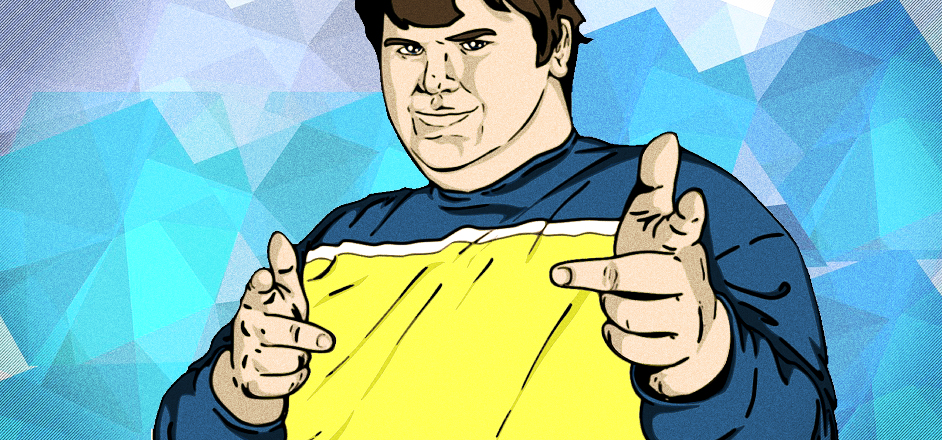Ever since I can remember, my uncle filled the room, both figuratively and literally.
There was a lot to love about him, but his obese figure threw a big, wide shadow over all of it. He was unhealthy. The way we saw it, as his condition worsened, it was clear he had to choose: us or food.
It wasn't until after his death we fully realized the choice wasn’t that simple. As quitting drugs is near impossible for an addict, so too is quitting food for the obese. Knowing then what we do now, my family and I could have done a better job of helping him make it through.
Growing up, my uncle’s weight and "complete lack of self-control" were always the main topic of conversation, both the ones he was a part of and when we were talking about him.
“How is Mitko?” my mom would ask my aunt over the phone. I'd only guess what the answer was on the other side. Often, I didn’t really have to guess — my mom was never quiet about her brother’s condition or the way she felt about it; she’s a cardiologist and knows better.
“Your uncle is even fatter,” she would inform me bluntly after hanging up.
Food always seemed to be his kryptonite.

Studies have established different, but close similarities between obesity and addiction. In his article "Is Obesity an Addiction?" for Scientific American, Paul Kenny explores this question in a few different contexts. He finds that while people generally produce a hormone called leptin, which suppresses appetite after a meal, highly appetizing foods can often overpower it — like with munchies — causing people to overeat.
As people overeat, body weight goes up, and as it does, leptin’s effect goes down. This happens because the body develops a tolerance to it, making it harder and harder to break the cycle. To make the whole process even more avalanche-like.
Sounds a lot like opioids, doesn’t it?
“Brain-imaging studies by researchers in at Brookhaven National Laboratory and the Oregon Research Institute show that the brain’s reward systems in overweight individuals respond weakly to food, even to junk food,” says Kenny. “These muffled reward circuits depress mood.”
The fatter a person, the more food he/she needs to experience pleasure from eating. And with the brain’s ability to produce dopamine (the hormone of happiness) seriously hindered by overeating, other sources of joy mute by comparison.
For a large man like my uncle, I can easily see now how he might have been sucked into this consuming whirlpool. He was a middle-aged man in a rather unhappy marriage, living in a small, boring town. His two kids were all grown.
Thinking back, my uncle displayed symptoms of relapse as well, a factor in line with Kenny’s findings. During a 10-day vacation at our house, he would visibly lose a few pounds just from not being alone, later allowing an eating spree at his home to completely take it away. We took those relapses as undisputable proof of his general unwillingness to change. And maybe they were, or maybe, they were his best attempts at temporarily winning an already lost battle and letting his true self shine through.
It’s probably safe to say my uncle could have tried harder to change. But looking back, we might have used a different approach to helping him. Dr. Rankin, an expert on behavioral change, identifies five tips to help lose weight, two of which we were in direct contradiction with:
“Focus on change of heart, not a change of mind … you must get in touch with your deepest, heartfelt desires.“ Trying to knock some sense into him like a nail into a wall clearly didn’t work because it wasn’t sense that he was lacking.
“Surround yourself with friends, family and loved ones who will support your effort.” There wasn’t much effort to support, but neither did we create the most supportive environment. Rather, we were more like a boxing coach who tries to bully the results out of trainees.
“Social pressure can work for you or against you,” Dr. Rankin continues. For my uncle, it worked against him, and we’ll never know what, if anything, could have worked for him. But keeping those tips in mind and seeing him primarily for who he was rather than for who his obesity had turned him into were surely some of the correct steps.
Most everyone can spot obese people or addicts, but what I've found, is loved ones need look past those weaknesses to save them from themselves.



Leave a Reply